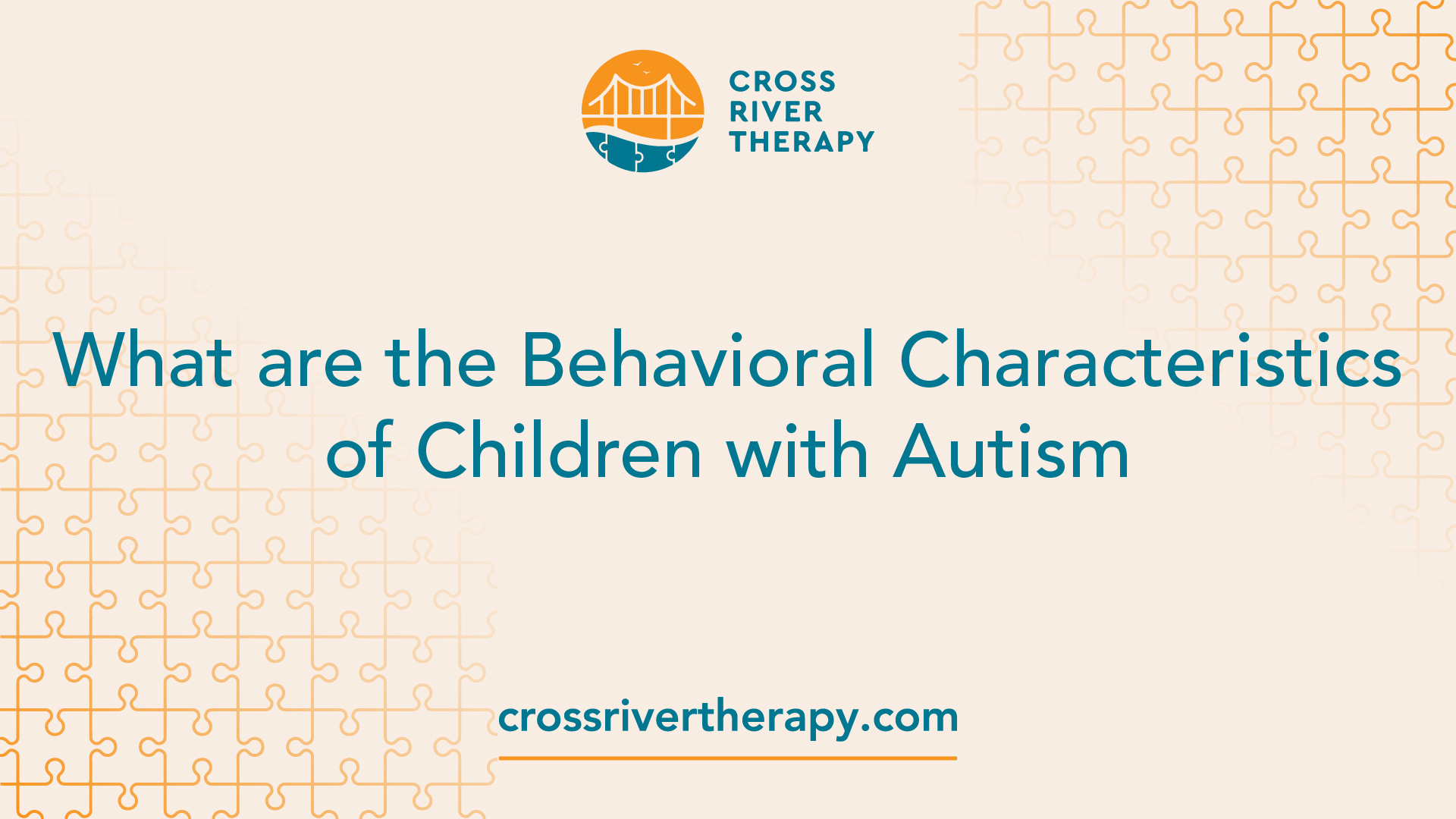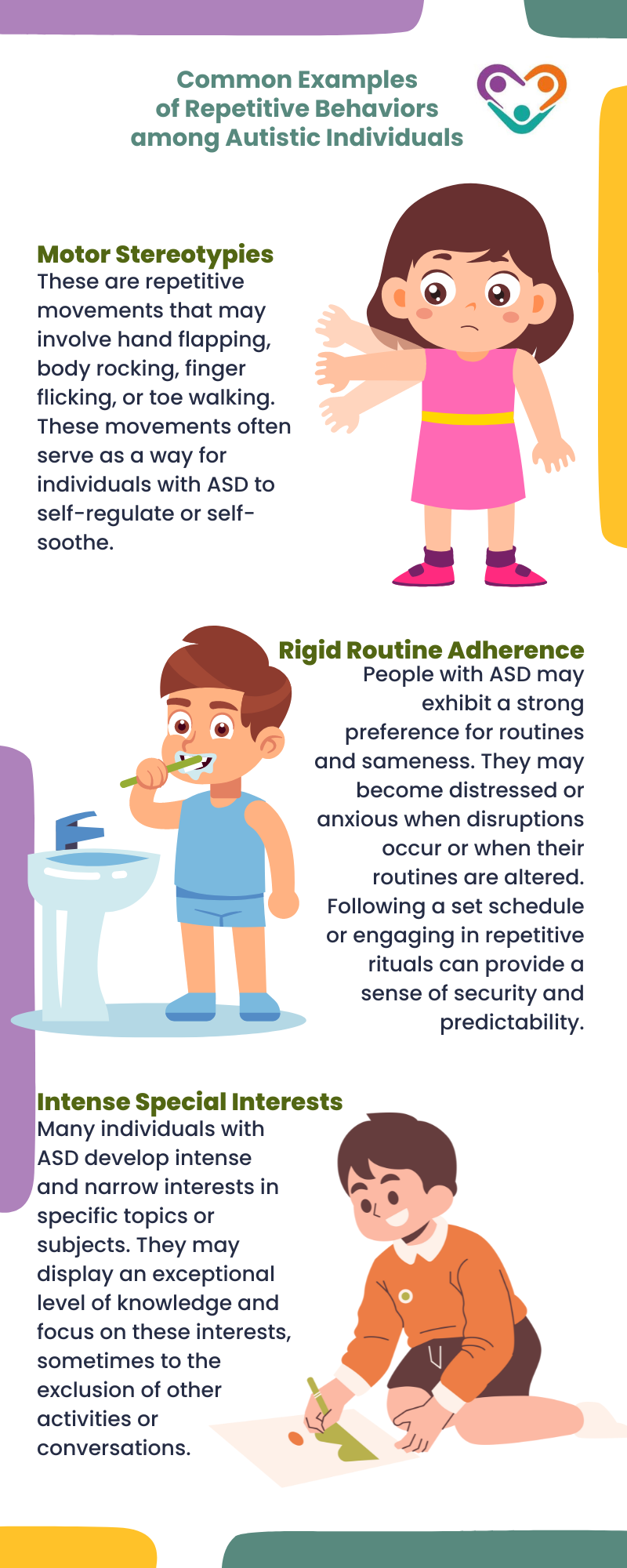When to reach out for help from an Aba Therapist Near Me
When to reach out for help from an Aba Therapist Near Me
Blog Article
Key Indicators and Symptoms to Recognize in People With Behavior Autism
When you experience someone with behavior autism, identifying vital indicators and signs is necessary. You might discover difficulties in social communications and communication, as well as a strong need for routines. Additionally, sensory sensitivities can result in overwhelming experiences. Comprehending these qualities can boost your assistance and interventions, however there's even more to reveal about how these habits show up in everyday circumstances. Let's explore what these indicators really appear like.
Challenges in Social Interactions
When you engage with somebody on the autism spectrum, you might notice they fight with social hints and communication. These challenges can make social communications really feel overwhelming for them. You may see them staying clear of eye contact or standing too close or also much away throughout conversations, which can develop misunderstandings. They could not notice body language or face expressions, making it harder for them to assess how others are feeling.
When they do engage, they may talk about their rate of interests in wonderful information without noticing if you're interested. Comprehending these difficulties can aid you approach communications with empathy and perseverance, fostering an extra comfortable atmosphere for both of you.
Trouble With Verbal and Non-Verbal Communication

Non-verbal interaction can be a lot more difficult. You might see an absence of eye call or limited usage of gestures, which can make interactions really feel unpleasant. Faces might not always align with the conversation, leading to complication concerning their feelings. Identifying these indications is essential, as it helps you far better assistance and involve with individuals on the autism spectrum. By understanding their interaction difficulties, you can cultivate more meaningful connections and offer a more encouraging atmosphere.
Repetitive Habits and Regimens
Interaction challenges commonly come with other indications of autism, such as recurring actions and a strong preference for routines. You may see that individuals with autism commonly engage in details, repeated actions, like hand-flapping, shaking, or repeating expressions. These behaviors can give convenience and a feeling of control in a frequently overwhelming globe.
Routines are similarly essential; several people thrive when they adhere to an organized routine. You may discover that modifications to these routines can result in considerable distress. If they have an everyday routine of eating breakfast at a specific time or adhering to a specific path to school, any kind of disturbance can trigger anxiety.
Identifying these patterns assists you comprehend their behavior and give assistance. By fitting their need for routine and permitting recurring activities, you can create a more comfortable setting that eases their obstacles.
Sensory Sensitivities

Usual Sensory Triggers
Sensory level of sensitivities can significantly influence every day life for people with autism, as certain stimulations frequently set off frustrating reactions. Typical sensory triggers consist of loud noises, intense lights, and strong smells. You may observe that sudden noises, like alarms or alarms, cause stress and anxiety or distress. In a similar way, fluorescent lighting in stores can feel severe and uneasy. Textures can additionally play a significant duty; rough fabrics or specific food appearances might be intolerable for you. Additionally, crowded locations can bewilder your detects, making it tough to unwind or focus. Comprehending these triggers can assist you handle your atmosphere much better. By recognizing what influences you, you can take actions to decrease pain and improve your everyday experiences.
Behavioral Responses Explained
Comprehending your behavior feedbacks to sensory level of sensitivities is essential, as they often disclose just how you engage with the world. You might notice that particular noises, lights, or structures overwhelm you, bring about anxiousness or discomfort. When faced with these stimulations, you might take out, cover your ears, and even react aggressively. These reactions aren't simply quirks; they're your way of handling overstimulation. You may additionally find yourself looking for certain sensory experiences, like deep stress or silent atmospheres, to assist ground on your own. Identifying these patterns aids you recognize your requirements better and can guide just how you communicate them to others. By recognizing your sensory sensitivities, you can work in the direction of developing an atmosphere that feels extra workable and comfy for you.
Coping Methods Overview
Identifying your sensory level of sensitivities is simply the very first step; now it's time to explore coping strategies that can aid you take care of those experiences properly. Beginning by producing a sensory toolkit tailored to your requirements. Establishing a structured regimen can additionally supply predictability, decreasing anxiety around sensory overload.
Limited Passions and Focus
While numerous individuals develop a large range of interests, those with autism commonly demonstrate limited rate of interests and an extreme focus on details topics. You could see that a person with autism can spend hours delving right into their favorite topic, whether it's read review a certain type of train, a specific movie, or a clinical idea. This intense emphasis isn't just a hobby; it can become a central component of their identification and social interactions.
You may discover that conversations revolve around these interests, and they might struggle to involve in broader subjects. For them, these concentrated rate of interests offer comfort and a feeling of mastery. While it's vital to motivate expedition of new topics, appreciating their passions is equally essential. By recognizing and recognizing these restricted interests, you can promote a helpful atmosphere where they really feel valued and understood, permitting more purposeful connections and communications.
Psychological Guideline Problems
People with autism frequently deal with difficulties in emotional policy, which can be influenced by their intense focus on certain passions. You could discover that when an individual is deeply involved in a preferred task, they can experience solid emotions, whether excitement or stress. When points don't go as planned., this strength often makes it difficult for them to move gears or handle their sensations - Autism Spectrum Therapies.

Variability in Developmental Milestones
When it involves developmental milestones, you'll see that individuals with autism usually reveal a large range of variability. Some might hit landmarks in a timely manner, while others may hang back or progression at a various pace. For circumstances, you could see a child master language skills yet battle with social interactions. This variance can be complex, as traditional benchmarks don't constantly use.
It's important to recognize that each person's trip is special. Observing these patterns can help you comprehend their strengths and needs much better.
Regularly Asked Inquiries
Exactly How Is Autism Identified in Children and Grownups?
To identify autism in kids and adults, experts assess habits, communication abilities, and social interactions. They commonly utilize see post standard tests, interviews, and observations to determine if a specific satisfies the requirements for autism spectrum condition.
Are There Different Sorts Of Autism Spectrum Disorders?
Yes, there are various kinds of autism spectrum problems, including Asperger's disorder and pervasive developing disorder-not otherwise specified. Each kind varies in extent and characteristics, so comprehending these distinctions can aid you far better support individuals with autism.
What Therapies Are Efficient for People With Autism?
When thinking about reliable therapies for individuals with autism, you'll discover options like Applied Habits Evaluation, speech therapy, and work treatment. Each approach can help boost communication, social abilities, and daily working customized to private demands.
Can Individuals With Autism Lead Independent Lives?
Yes, people with autism can lead independent lives. With the ideal assistance, skills training, and sources, you can help them establish self-sufficiency, handle day-to-day jobs, and flourish in numerous atmospheres, cultivating their self-reliance.
Just How Can Households Assistance Enjoyed Ones With Autism?
You can support your loved ones with autism by creating an organized setting, encouraging their interests, practicing perseverance, fostering interaction, and advertising social skills. Commemorate their accomplishments, despite exactly how little, and develop an encouraging neighborhood.
Although numerous individuals on the autism spectrum can comprehend and utilize language, they often deal with substantial obstacles with both verbal and non-verbal communication. Acknowledging these indicators is essential, as it helps you better support and involve with individuals on the autism spectrum. You may useful reference notice that individuals with autism usually involve in details, repetitive activities, like hand-flapping, rocking, or duplicating expressions.Sensory level of sensitivities can considerably impact everyday life for individuals with autism, as specific stimuli commonly set off frustrating reactions.When it comes to developing milestones, you'll see that people with autism commonly show a wide array of irregularity.
Report this page